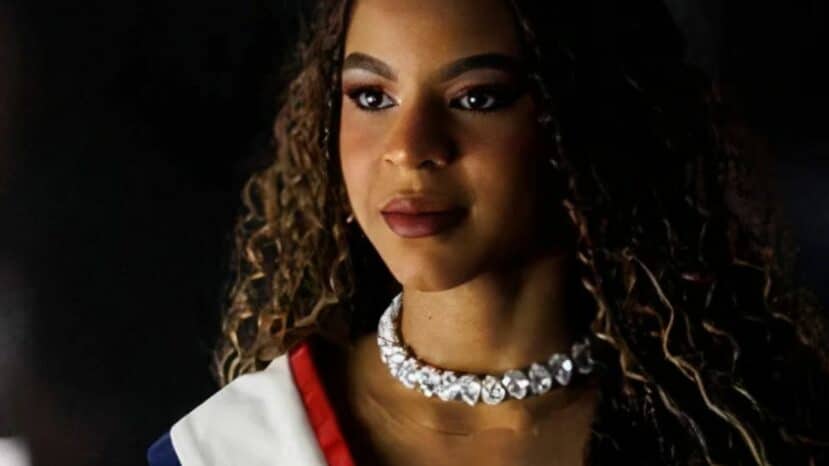Beyoncé has emerged triumphant in a landmark legal battle spanning over a decade, finally securing the trademark rights to her daughter Blue Ivy’s name. The announcement, made official by The Trademark Official Gazette on December 31, marks the end of a complex legal journey that began shortly after Blue Ivy’s birth in 2012, when Beyoncé and Jay-Z first moved to protect their daughter’s unique name from commercial exploitation.
The path to this victory was far from smooth, with multiple challenges threatening to derail the superstar’s efforts to safeguard her daughter’s identity. The initial opposition came from wedding planner Veronica Morales, who had been operating “Blue Ivy Events” since 2009. This challenge presented the first major hurdle in what would become a prolonged legal struggle, forcing Beyoncé’s legal team to prove that their trademark claim wouldn’t interfere with existing businesses.
A significant turning point came in 2020 when the U.S. Patent and Trademark Office made a crucial distinction between the event company’s name and Blue Ivy Carter’s name, effectively dismissing Morales’ objections. This ruling established an important precedent about the difference between personal identity rights and business branding, particularly when it comes to celebrity children’s names.
The legal saga took another turn in 2023 when Beyoncé renewed her trademark application, only to face fresh opposition from a Wisconsin boutique claiming rights to the “Blue Ivy” logo. However, when the boutique failed to formally contest the filing, it cleared the way for Beyoncé’s legal team to proceed with finalizing the trademark claim.
This victory represents more than just a legal win for the Carter family. It sets a precedent for celebrity parents seeking to protect their children’s names from unauthorized commercial exploitation. The case highlights the growing importance of personal brand protection in an era where social media and digital marketing have made it easier than ever to capitalize on celebrity connections.
The significance of this trademark extends beyond simple name protection. It grants Beyoncé and Jay-Z extensive control over how their daughter’s name can be used commercially, particularly in industries ranging from beauty products to entertainment services. This level of protection is increasingly crucial in today’s digital age, where personal brands can be exploited across multiple platforms and markets.
Critics and supporters alike have watched this case closely, as it raises important questions about the intersection of personal rights, business interests, and celebrity culture. The length and complexity of the legal process demonstrate the challenges in balancing existing business rights with the protection of personal identity, especially when it comes to minors in high-profile families.
The timing of this victory, coming at the end of 2024, marks a significant milestone in celebrity trademark law. It shows how the legal system has evolved to address the unique challenges faced by public figures in protecting their family members’ identities from commercial exploitation.
This case also highlights the determination of Beyoncé and Jay-Z in protecting their daughter’s interests, demonstrating that even global superstars must navigate complex legal channels to secure their children’s rights. Their persistence through multiple challenges and appeals shows the importance they place on maintaining control over their family’s personal brand and identity.
The successful trademark registration now gives the Carters comprehensive legal protection against unauthorized use of Blue Ivy’s name in various commercial contexts. This protection is particularly valuable in an age where celebrity children often become brands in their own right, whether intentionally or not.
Looking forward, this trademark victory could influence how other celebrity parents approach the protection of their children’s names and identities. It sets a legal precedent that could streamline similar cases in the future, potentially making it easier for parents to secure their children’s naming rights.
For Beyoncé and Jay-Z, this victory represents the successful conclusion of a long-term strategy to protect their daughter’s unique identity. It demonstrates their commitment to ensuring that Blue Ivy’s name remains under family control, free from unauthorized commercial exploitation by third parties.



